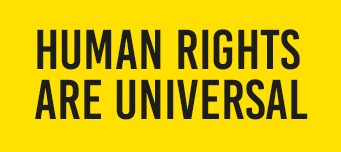Youth Voices: How Young Artists Are Shaping the Human Rights Conversation

In a small studio in Kampala, 19-year-old Esther Nabulime hunches over a canvas, carefully applying strokes of vivid color to depict a scene of environmental activism. Across town, 22-year-old hip-hop artist Benjamin "Truth" Okello records verses about social inequality. And in a community center, a group of teenagers rehearse a play about gender-based violence.
These young artists represent a new generation of creative voices who are reshaping the conversation about human rights in Uganda and beyond. Combining artistic skill with deep social consciousness, they are addressing human rights issues with approaches that feel authentic and relevant to their peers.
"Young people often face the misconception that we don't care about serious issues," says Nabulime. "But we do care. We just express our concerns differently than older generations might."
That expression often involves digital media, interdisciplinary approaches, and collaborative methods that blur the lines between art forms and between artists and audiences.
"Social media is a huge part of how we share our work," explains Okello. "It allows us to reach thousands of people instantly and engage them in conversation. When I post a track about police brutality, I can see the impact in real-time through comments and shares."
Education and mentorship have been crucial in supporting these young artists. Organizations like Youth Arts Initiative and the Freedom Expression Hub provide training, resources, and exhibition opportunities specifically for creators under 25.
"Having spaces where young artists can develop their skills and their voice is essential," says Grace Atim, who coordinates youth programs for the Human Rights Are Universal Festival. "We need to nurture this talent and recognize young people as the leaders they already are, not just future leaders."
This year's festival will feature a dedicated "Youth Voices" program, including an exhibition of works by artists under 25, performances by young musicians and actors, and workshops led by established artists who mentor youth.
"The energy and perspective that young artists bring to the festival is invaluable," says festival director James Tumusiime. "They challenge us to think differently about human rights issues and remind us why this work matters for future generations."
For the young artists themselves, the festival offers validation and visibility. "Being included in a major festival like this shows that our voices matter," says Nabulime. "It gives us a platform to share our vision for a more just world."






